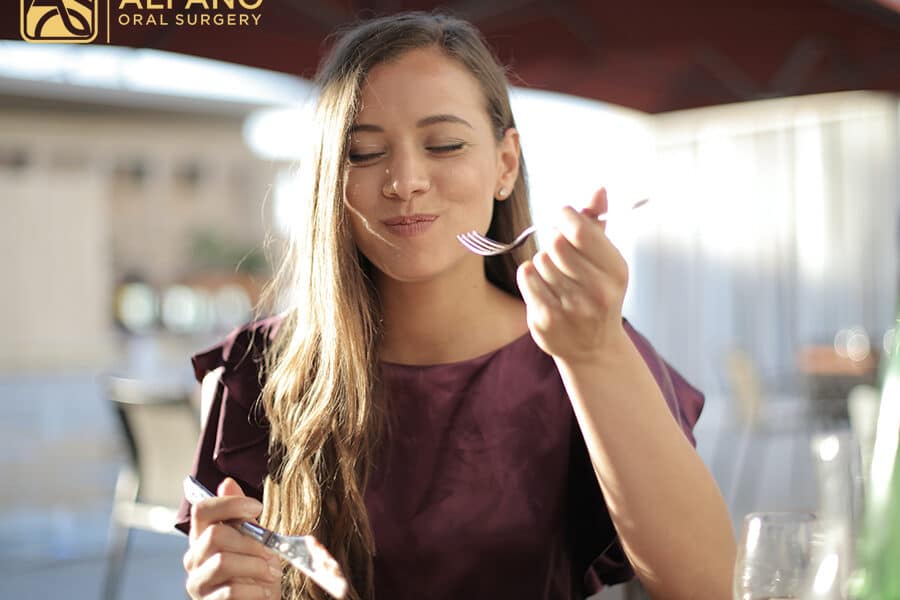When you come in for oral surgery, there are numerous ways your oral surgeon will attempt to make the procedure pain-free. It’s important to think about whether or not to eat before the procedure and how much. Here we’ll explain dietary restrictions for the different types of sedation you’ll receive during your dental procedure which will help to determine if it’s okay to eat before your oral surgery. Restrictions do vary from patient to patient, so use this article only for general information. Talk to your dentist about what you need to do specifically to prepare for your oral surgery.
Nitrous Oxide
There typically aren’t any dietary restrictions associated with nitrous oxide, popularly known as “laughing gas.” If you’re someone who is prone to feeling nauseated from medication in general, it may be a good idea to avoid eating if you know you’ll want to have nitrous oxide administered.
Oral Sedation
Oral sedation is typically given to you in the form of a pill. Often you’ll receive a prescription that will instruct you to take one pill the night before your procedure and another before the procedure. Most often restrictions before this type of sedation are minimal. In some cases, patients may be asked to refrain from having food up to six hours prior to the procedure. Usually, clear liquids are fine to consume during that time.
IV (Intravenous) Sedation
This type of anesthesia is used mainly for oral surgeries that are extremely invasive. With this type of anesthesia, medication is administered intravenously through your hand. This will make you unaware of what’s happening but you’ll still be able to respond and communicate during the procedure. As a result of the more powerful anesthesia involved, there are some further dietary restrictions compared to other methods. You may be instructed to not eat beyond midnight the night before your procedure and six hours prior to the start of surgery. Typically you’ll be able to drink clear liquids up to two hours prior, but it’s generally best to begin the surgery with an empty stomach. You may also be instructed to avoid alcohol consumption up to 24 hours beforehand.
Conclusion
For the most part, dental procedures don’t usually involve any very strict dietary restrictions. For normal cleanings, it is recommended to try to avoid eating right before the appointment to help the process be as efficient as possible. In terms of more invasive dental procedures where anesthesia is involved, restrictions will vary from person to person and among the different procedures. The most important thing is to communicate with your dentist or oral surgeon to ensure your procedure goes as smoothly as possible.
